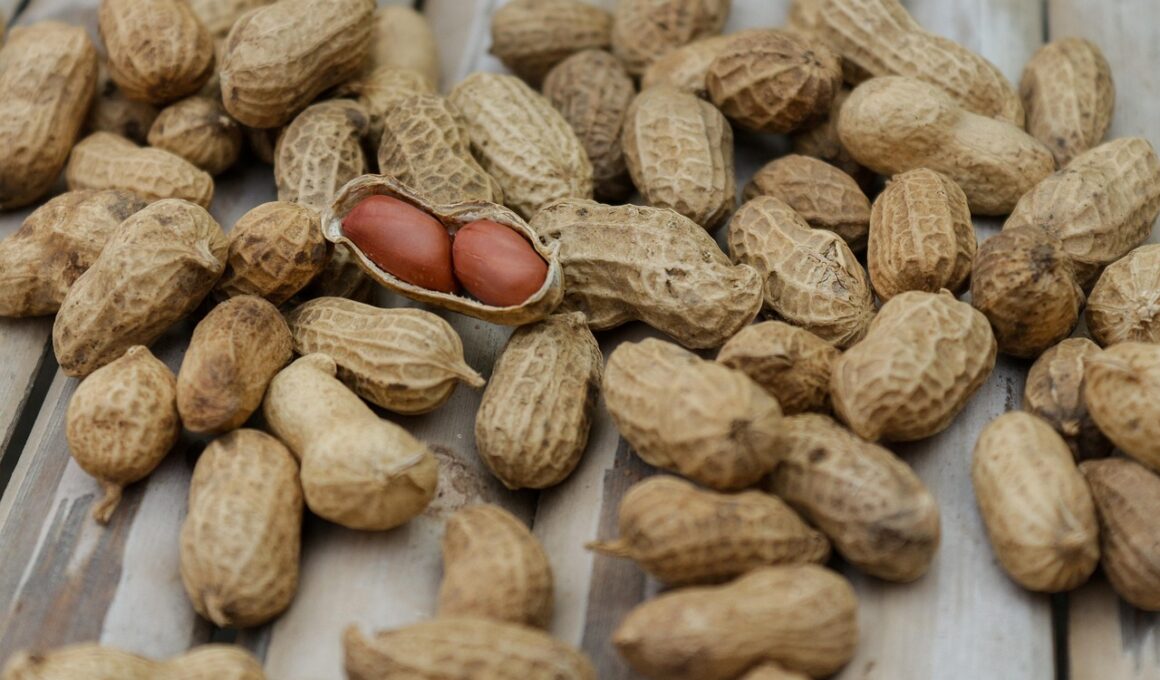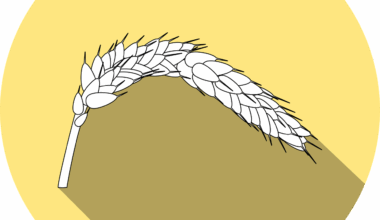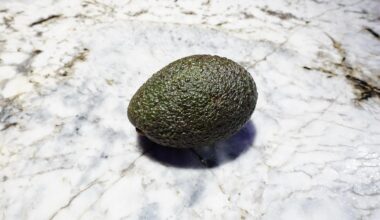Top 10 Foods for Optimal Triathlon Performance
For triathletes, nutrition is crucial for sustaining energy and enhancing performance. The right foods can have a significant impact on training and race day success. Proper nutrition not only fuels workouts but also aids in recovery and helps prevent injuries. One of the best choices for athletes is whole grains, which provide long-lasting energy sources. Foods like brown rice, quinoa, and oats are excellent for maintaining stamina during long sessions. Additionally, when planning meals, include plenty of fruits and vegetables. They are packed with essential vitamins and minerals, crucial for a strong immune system. Foods such as spinach, kale, bananas, and berries are particularly beneficial. Incorporating lean proteins into the diet is equally important. Foods such as chicken, turkey, fish, and plant-based protein sources help in muscle recovery after hard workouts. Consequently, balancing carbohydrates, proteins, and healthy fats ensures optimal performance. Furthermore, hydration through electrolyte-rich foods like coconut water and incorporating nuts for healthy fats will enhance energy levels. Each athlete’s needs vary, and they should experiment to discover what works best for them over time.
Essential Carbohydrates
Carbohydrates are vital for endurance athletes like triathletes, as they supply the necessary energy for rigorous training sessions. Foods high in carbohydrates can efficiently replenish glycogen stores depleted through extended exercise. Examples of excellent carbohydrate sources include whole grain bread, pasta, and root vegetables. Sweet potatoes are not just delicious, but they also provide vitamin A and antioxidants, making them a nutritious option. Furthermore, fruits such as apples and bananas offer quick energy and promote hydration. Rice, particularly brown or wild rice, is another excellent source of carbohydrates that can be enjoyed as part of a balanced meal. Incorporating these foods into the diet leads to better performance overall. For competitive triathletes, consuming simple carbohydrates during races is beneficial for quick energy. Energy gels, chews, or sports drinks provide a quick carb hit without heavy digestible foods. Additionally, triathletes should consider meal timing. Having carbohydrates before training helps prepare the body for the workout, while post-workout carbohydrates aid in replenishing energy reserves efficiently. Finally, rice cakes topped with nut butter prove to be a tantalizing option for both pre- and post-race nutrition.
Moreover, proteins play an equally significant role in triathlon training. Consuming adequate protein not only aids in muscle repair but also helps support overall metabolism. Lean meats such as chicken and turkey are reliable protein sources that offer excellent amino acid profiles. Fish, especially salmon, is also highly recommended because it contains omega-3 fatty acids, which reduce inflammation and promote recovery. For vegetarians and vegans, legumes and lentils serve as great alternatives, providing both protein and fiber to the diet. Quinoa, renowned for its complete protein content and versatility, can be included in various meals, maximizing nutritional benefits. Greek yogurt is another excellent option; it can be transformed into smoothies or eaten with fruits for added flavor and nutrients. Including nuts, seeds, and dairy products can also contribute to achieving sufficient protein intake. Wether athletes consume brick protein bars or snacks throughout the day, such as edamame or cottage cheese, these provide important building blocks for their muscles. Ultimately, a balanced approach combining carbohydrates and proteins effectively equips triathletes to succeed in their races.
Healthy Fats for Endurance
For optimal triathlon performance, healthy fats should not be overlooked. While often deemed unhealthy, fat serves as a vital energy source during prolonged endurance activities. Foods such as avocados, nuts, and olive oil are examples of healthy fats that are packed with essential fatty acids. Nuts and seeds, including almonds, walnuts, and chia seeds, provide both energy and a plethora of antioxidants that combat oxidative stress caused by intensive training. Avocados present a creamy option rich in monounsaturated fats, perfect for spreading on whole-grain bread or adding to salads. Furthermore, incorporating omega-3 fatty acids found in fish, like mackerel and sardines, can enhance cardiovascular health. Triathletes can include fat in their meals by opting for nut butters or cooking with olive oil. A balanced intake of fats helps regulate hormones, supports cellular function, and provides ample energy stores for race days. It is prudent to stick with whole-food sources of fat rather than processed options which often lead to inflammation. In conclusion, strategic incorporation of fats into triathlon diets presents numerous advantages and enhances athletic performance significantly.
Moreover, hydration remains a crucial aspect of triathlon training and performance. Staying well-hydrated before, during, and after workouts helps maintain stamina and focus. It is essential for triathletes to understand their individual hydration needs, as excessive sweating rates vary from person to person. Including electrolyte-containing gels, drinks, and even foods can bolster hydration levels effectively. Coconut water, known for its refreshing taste and high electrolyte content, is a popular choice among athletes. Consuming water-rich fruits like watermelon and oranges, in addition to fluid intake, aids in maintaining hydration status. Furthermore, incorporating hydration into meal planning is beneficial. This can include creating smoothies with spinach, fruits, and yogurt or making broths with vegetables. On race day, careful attention to hydration can prevent fatigue and optimize performance; triathletes should have a hydration strategy tailored to the race conditions. Experimenting with electrolyte solutions might also help athletes gauge how their bodies respond to different options. Ultimately, proper hydration strategies will improve performance and enhance recovery during training cycles, ensuring readiness on race day.
Pre-Race Nutrition Strategies
On race day, consuming the right foods close to the start time is vital. A balanced pre-race meal that includes carbohydrates, moderate protein, and healthy fats is crucial for fueling performance. Prior to the race, triathletes should opt for easily digestible foods. Breakfast options like oatmeal topped with banana or a smoothie with yogurt, whey protein, and fruits are excellent choices. Keeping portions moderate helps prevent stomach discomfort during competition. Additionally, hydration should continue leading up to the race. Consuming electrolyte drinks or small volumes of water can assist in avoiding dehydration while preventing excessive bloating. Triathletes may also consider taking caffeine in moderation, as it can enhance focus and performance in endurance activities. It is essential to remember that experimenting with pre-race meals during training sessions is crucial; it helps determine what foods sit best in the stomach. Each athlete’s digestion patterns differ, so figuring out what works best over time ensures optimal performance on race day. Finally, a well-established pre-race nutrition plan ultimately leads to confidence and enhanced race-day readiness, contributing significantly to performance outcomes.
Post-race recovery strategies are imperative for enhancing performance in future races. Consuming the right foods immediately following a triathlon can help to minimize soreness and muscle fatigue. A recommended post-race meal should include a balance of carbohydrates and protein, allowing for effective muscle repair and glycogen replenishment. Examples of effective post-race foods include protein smoothies made with fruits or a recovery bowl containing rice, beans, and lean protein, such as chicken. The goal is to refuel adequately within the first 30 minutes post-exercise, as this aids rejuvenation. Similarly, hydration should continue after the race to restore fluids lost during the event. Drinking water or electrolyte drinks capable of swift absorption further emphasizes hydration’s importance in recovery. Incorporating nuts or energy bars can serve as convenient recovery options, providing nutrients needed for muscle recovery. Furthermore, monitoring recovery strategies in training can help optimize what works best individually. Over time, these strategies will lead to improved recovery times and overall performance. In conclusion, a focus on post-race nutrition allows for growth and development, maximizing future triathlon preparedness.
In conclusion, optimal triathlon performance is achievable through a strategic approach to nutrition. Including a range of foods rich in carbohydrates, proteins, and healthy fats can lead to improved energy levels and recovery. Incorporating whole grains, fruits, vegetables, lean proteins, nuts, and healthy fats creates a solid foundation for any triathlete’s diet. Hydration remains a pivotal focus, particularly among athletes to ensure sustained stamina and peak performance during races. Creating personalized meal plans tailored to individual needs throughout training and competing is essential, allowing each athlete to discover what fuels them best. Experimenting with nutrition in training helps identify correct timing, portion sizes, and food combinations. Pre-race, race-day, and post-race nutrition strategies will contribute significantly to overall readiness and performance. The right plan allows triathletes to not only endure their races but excel beyond their expectations. Ultimately, nutrition is not just about fuel; it’s a fundamental element of triathlon success that fosters growth and positivity. Athletes embracing informed nutritional strategies will undoubtedly set themselves up for lasting results and continued improvement in their performance journey.


